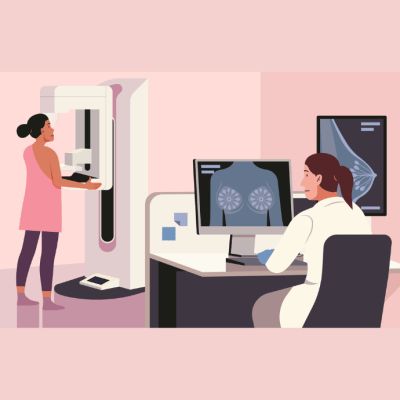Whole body magnetic resonance imaging (WB-MRI) enables early cancer detection, without exposing the patient to ionising radiation. New research assessing patients' acceptance of WB-MRI as a procedure for cancer staging and follow up finds higher satisfaction with WB-MRI in patients who are more informed before the exam.
"WB-MRI appears to be equally or more tolerable than other total body imaging modalities (e.g., PET, CT), especially if they receive enough information from the radiologist," according to the research published in the journal Clinical Imaging. "Patient familiarity with imaging procedures, and the perception of having received adequate information about the WB-MRI procedure were seen to be particularly important in determining the acceptance of and satisfaction with the WB-MRI examination."
WB-MRI is performed to obtain three-dimensional and panoramic reconstructions of the entire body. Overall, the exam provides diagnostic performance comparable to total-body computed tomography (CT) exam with contrast or positron emission tomography (PET). While these same performance characteristics should be appealing to patients, studies have shown that MRI examinations can be challenging experiences for patients. This because they are placed in a narrow tube with whole body and head, the exam is long, it is noisy and sometimes requires coils wrapped around the patient that restrict movements. Sometimes the level of concern prior to an MRI exam is comparable to that experienced by patients before undergoing surgery, and this could influence patients' perceptions of the quality of their care, the quality of their health and create general dissatisfaction.
The current study aimed to investigate the perception and acceptance of WB-MRI magnetic resonance by oncologic patients, through a survey before and after the exam. A total of 135 oncologic subjects (77 female, 58 males) participated in the study. An ad hoc questionnaire was administered before and after WB-MRI, to assess patient's confidence and concerns about WB-MRI, psychological reactions, experience and perceived utility of the procedure.
Researchers reported these key findings:
- Before undergoing WB-MRI, about 58% of the patients were concerned for cancer progression outcome.
- 80.4% felt that they were given good information about the exam and the most informed group also perceived a higher level of utility of WB-MRI and no risk.
- Patients who reported discomfort with the exam (51.9%) said the main reasons were noise and exam duration.
- Overall, 80% of patients expressed high levels of satisfaction, and the majority (69%) judged WB-MRI more acceptable than other diagnostic exams.
Notably, participants who stated they had received adequate information by the staff expressed more satisfaction in undergoing WB-MRI examination and higher perceived utility. "In our cohort, 93% of the participants gave a positive opinion of the utility of the WB-MRI examination and just 21% perceived WB-MRI as risky," the researchers said.
Previous studies have revealed that interaction with staff members and receiving adequate information aid patients in participating in their care. Conversely, a sense of lacking knowledge, due to little or unexplained information, can contribute to feelings of inadequate involvement when undergoing the examination, and this can generate anxiety.
Referring physicians, radiologists and psychologists should seek to detect patient anxiety as early as possible time, to discover the source of the distress, and to provide appropriate intervention, according to the researchers.
"Our results foster the idea that an efficient communication might focus on educating the patient about the challenging aspects of the MRI and might aim to share patient's fear (of the exam and the implications for treatment and prognosis). A patient who knows what to expect, feels that the procedure is entirely under their control (such as the possibility to pause the exam whenever he/she goes into a panic) and is instructed about the health benefits of the MRI images is less likely to become anxious, perceives higher satisfaction and motivation," the researchers explain.
Source: Clinical Imaging
Image Credit: Clinical Imaging
References:
Serena O et al. (2018) Investigating cancer patient acceptance of Whole Body MRI. Clinical Imaging, 52: 246-251 Available online 08 August 2018. https://doi.org/10.1016/j.clinimag.2018.08.004
Latest Articles
cancer detection, whole body MRI, WB-MRI
Whole body magnetic resonance imaging (WB-MRI) enables early cancer detection, without exposing the patient to ionising radiation. New research assessing patients' acceptance of WB-MRI as a procedure for cancer staging and follow up finds higher satisfact



















